Brian DeChesare – Excel Financial Modeling Fundamentals Course [Real Estate]
Archive : Brian DeChesare – Excel Financial Modeling Fundamentals Course [Real Estate]
“How to Learn Valuation and Financial Modeling and Dominate Your Investment Banking Interviews”
Master Excel and Financial Modeling and You’ll Leap Ahead of Everyone Else – Before You Even Walk Into the Interview Room and Land Your First Investment Banking Offer
- Re-Imagined to Ensure Your Competitive Edge in Today’s Market. Completely rebuilt from the ground up with today’s competitive job market in mind. Get dozens of brand-new video tutorials, written notes for each lesson, transcripts, and 10+ in-depth, practical case studies from around the globe. Achieve the deep conceptual understanding that bankers are looking for, but rarely find – and discover how to use modeling in real life to outperform your peers on the job
- Dominate Your Interviews. The Financial Modeling Fundamentals lessons take you from A to Z in accounting, valuation, and financial modeling – and you’ll get to test your knowledge by completing practice exercises along the way, and by answering the written case study questions at the end of each module.
- Prepare for IB, PE, and HF Case Studies. Everything in the course is based on case studies of real companies – now expanded to include companies in Europe, Asia, and Australia, to ensure you gain a truly global perspective. You’ll know exactly what interviewers are looking for in case studies, and you’ll learn how to set up your models and answer questions successfully.
- Learn by Watching with Video-Based Training. Video learning is more engaging, and there’s no substitute for watching over the shoulder of an IB veteran as they work through real-world Excel models. But it’s also helpful to have the written version, so you’ll get notes in the Excel files for each lesson, along with quick reference PDFs and the full, word-for-word transcripts.
- Master Excel. Whether you’re a novice or an experienced user, you’ll be a bona fide pro by the end of this course – and you’ll save hours of spreadsheet drudgery. That translates into better reviews and bigger bonuses… and more lucrative exit opportunities, of course.
- Learn Accounting, Valuation, and Merger and LBO Models. These are the fundamental skills you’ll need in investment banking, private equity, and hedge funds – and you’ll be ahead of the game by mastering them before you start working.
- Test Your Knowledge with Practice Exercises. You’ll get “Before” and “After” Excel files for each lesson – follow along with the lesson, complete the exercises, and check your answers afterward. You can use these exercises to learn, measure your progress, and review the material quickly whenever you need it.
- Test Yourself with In-Video Quiz Questions. Hundreds of in-video quiz questions allow you to test your knowledge, guarantee your engagement, and support quicker mastery of the concepts. You can also test yourself with a separate quiz at the end of each module in the course.
- Track Your Progress and Take Notes. You can check off each lesson as you move through the material – and take notes throughout. It’s easy to return and refresh your knowledge whenever you need to do so. You can also bookmark your exact progress in each lesson and create Playlists of the key lessons you want to review.
- Get All Your Questions Answered. You get world-class support – experienced bankers will answer your questions, comments, and emails 365 days per year (Yes, even if you get a case study and you have questions on Christmas Day or New Year’s).
- Course Certifications. After completing the course, you’ll be eligible to take our Certification Quiz. Once you pass the quiz, you’ll receive a Certificate that you can add to your resume/CV and refer to in interviews as evidence of your knowledge and skill set.
What’s Inside the
BIWS Excel & Fundamentals 3.0 Course?
Breaking Into Wall Street has now helped 22,981+ students and entry-level professionals launch lucrative careers in investment banking, private equity, hedge funds, equity research, corporate finance, and related fields.
We spent over a year with our ear to the ground, analyzing every comment and every support email to uncover what NEW challenges BIWS members are facing in today’s real-world job market.
Here’s what we discovered, and how the job market and interviews themselves have changed…
The World Has Changed… We’ve Adapted and So Must You!
- Case studies and modeling tests have become common in all types of interviews, even for 2nd year university interns. You need to be able to “talk the talk” AND demonstrate knowledge ‘on demand’ – not only as it relates to one company from one case study in one industry.
- Conceptual explanations have become critical, and you can’t answer interview questions without understanding the concepts. A lot of candidates have been memorizing responses from interview guides… so interviewers are asking more and more questions related to the concepts rather than specific facts or formulas.
- Self-testing is also crucial – yes, you can always complete the Excel files yourself, but you should be able to test yourself in multiple different ways. And, you might just want a very quick review of the key concepts so you’re confident you’ve ‘got it down.’
- You need to understand how to use modeling in real life – Many courses are “formula-focused,” but knowing the formulas won’t teach you how to advise clients or make money from your investment decisions in real life – the key skills you need on the job, and in interviews.
- Global deals and local differences are increasingly important – so you need to know how IFRS differs from US GAAP, how companies in different countries might do deals differently, and where to find the information regardless of which region you’re in.
In response to those changes, we developed the latest, greatest version of this course.
You’ll learn the concepts and put them into practice with companies and deals across 4 continents, and you’ll complete a series of case study presentations and written responses for the major topic areas.
Plus, you’ll test yourself along the way on both the concepts and the execution, with quiz questions, Excel exercises, and written documents and case study prompts.
What You Get – And What the Excel & Financial Modeling Fundamentals Course Will Do for You…
When you’re interviewing for internships and full-time positions at investment banks, you’ll always get a few questions over and over…
- How much do you know about accounting?
- Can you walk me through a valuation?
- What happens in a merger model or LBO model when you adjust the assumptions…
- How would you describe your financial modeling skills?
When you master real-world techniques and case studies, you have a significantly better chance of landing prime jobs and internships with the top investment banks, private equity firms, and hedge funds.
Excel & Financial Modeling Fundamentals lets you gain all that real-world knowledge via video-based training created by investment bankers.
You’ll get a total of 340 videos – everything you need to beat the competition in interviews and get a head start before you start working. You also get word-for-word transcripts of all the videos, to make scanning and note-taking even easier.
MUCH MORE THAN THEORY
We base everything in the Excel & Financial Modeling Fundamentals course on what investment bankers actually do in real life:
- The Excel lessons are based on two real-life case studies: how to format, manipulate, and analyze customer due diligence data, and how to build and format a 3-statement model and valuation of Wal-Mart.
- The Financial Modeling Fundamentals lessons are based on 10+ case studies involving companies such as Atlassian (Australia), EasyJet (UK), Vivendi (France), Jazz Pharmaceuticals (US), Men’s Wearhouse / Jos. A. Bank (US), Suntory / Beam (Japan and US), 7 Days Inn (China), Chuck E. Cheese’s (US), Kakao / Daum (Korea), and Netflix (US).
- …and you’ll get bonus case studies and tutorials on Intel’s $8B acquisition of McAfee, ConAgra’s $5B bid for Ralcorp, TPG’s $3B leveraged buyout of JCrew, and more.
Through these case studies, you’ll discover how to:
- Use Excel and master all the shortcuts – in any modern version of Excel, on both the PC and Mac.
- Build a 3-statement projection model and answer accounting questions in interviews.
- Value a company – how to find public comps and precedent transaction and get the right data, and how to build a DCF model to value a company based on its future cash flows. And then how to use the valuation output in a stock pitch, a pitch book, and an equity research report.
- Create a merger model – learn what happens when one company acquires another one, how to evaluate accretion / dilution and other metrics, and how to use the financial metrics to advise your clients on what to do.
- Build LBO models – how to set up the assumptions, create debt schedules, model interest and principal repayments, and calculate the IRR and MoM multiples… and then make an investment recommendation.
The information you’ll find is so detailed and so thorough that our customers regularly come from top-ranked universities, investment banks, and business schools.
Once you’ve completed the training, here’s what you’ll
be able to write on your resume / CV:
John Doe
Curriculum Vitae
EXPERIENCE:
Breaking Into Wall Street Financial Modeling Training
- Completed modeling tutorials based on case studies of companies and deals in North America, Europe, Asia, and Australia
- Built 3-statement projection model for EasyJet (UK) based on airline’s key drivers for revenue, expenses, and cash flow; concluded that company’s ROCE would be unlikely to reach 30% in 5 years
- Valued Jazz Pharmaceuticals (US) based on drug-by-drug financial projections and public comps, precedent transactions, and 10-year DCF analysis; concluded that company was undervalued by 30-40% and made Long recommendation
- Completed case study based on Carlyle’s $687 million leveraged buyout of 7 Days Inn (China); projected revenue, expenses, and cash flow, set up LBO model, and made positive investment recommendation based on high probability of achieving 20% IRR over 5 years
- Received course certification for Excel and Fundamentals courses by passing quizzes with score of at least 90%

![Brian DeChesare – Excel Financial Modeling Fundamentals Course [Real Estate] Brian DeChesare – Excel Financial Modeling Fundamentals Course [Real Estate] digital download](https://intellschool.com/wp-content/uploads/2022/02/Brian-DeChesare-–-Excel-Financial-Modeling-Fundamentals-Course-Real-Estate.jpg)
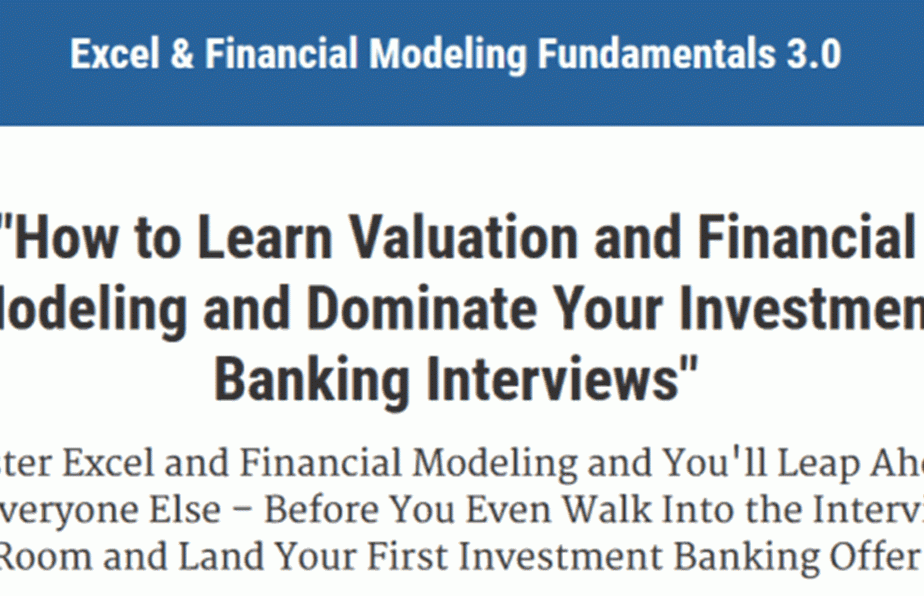
![Brian DeChesare – Excel Financial Modeling Fundamentals Course [Real Estate] digital download](https://intellschool.com/wp-content/uploads/2022/02/Brian-DeChesare-–-Excel-Financial-Modeling-Fundamentals-Course-Real-Estate-150x206.jpg)


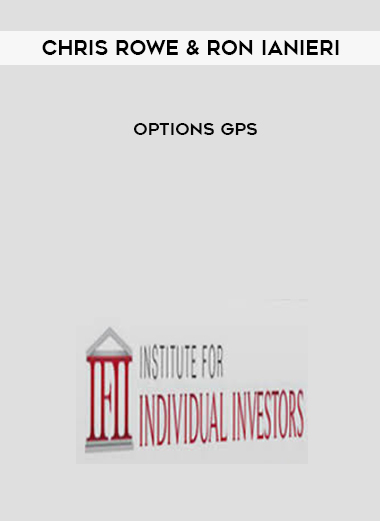

![Brian DeChesare – Excel Financial Modeling Fundamentals Course [Real Estate]](https://intellcentre.store/wp-content/uploads/2018/01/Brian-DeChesare-Excel-Financial-Modeling-Fundamentals-Course-Real-Estate-300x194.gif)


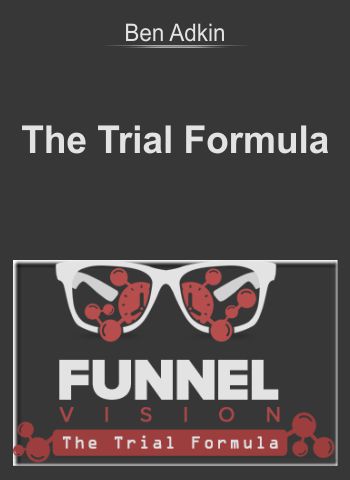

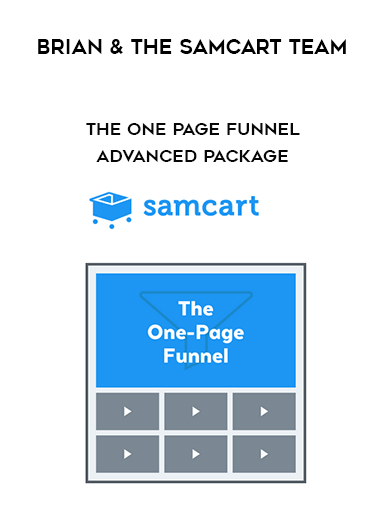
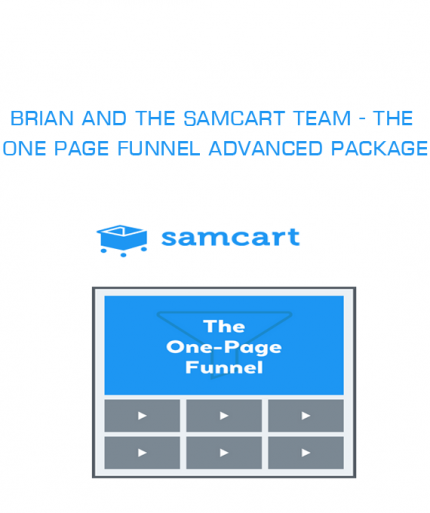


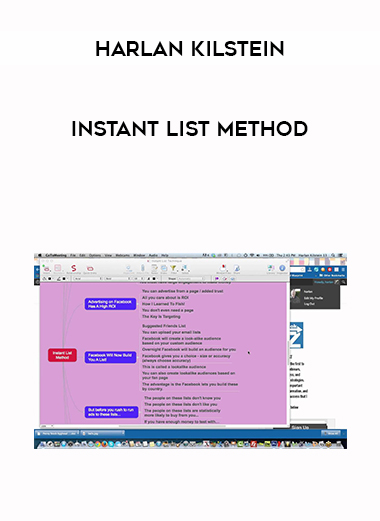
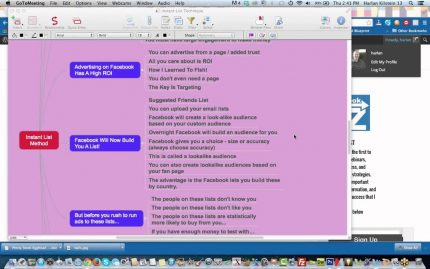
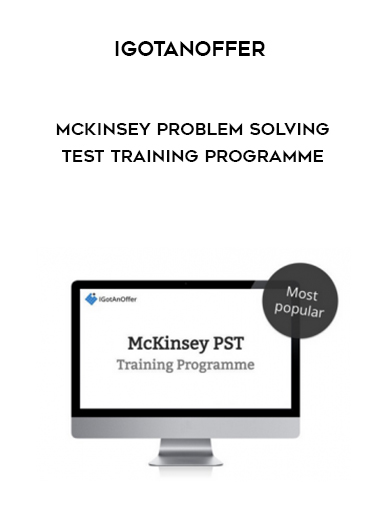
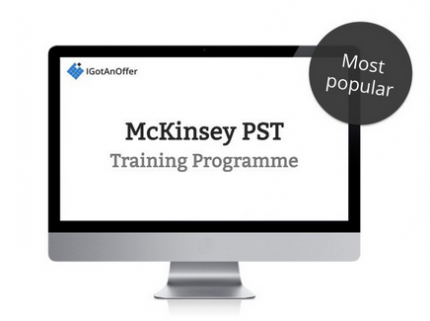














Reviews
There are no reviews yet.